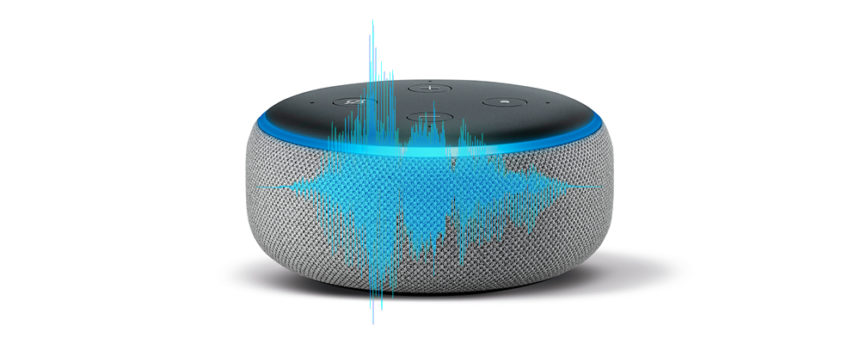By 2022, smart speakers will be present in more than half of U.S. homes and, in the majority of those homes, voice activation will be a part of daily routine. These statistics present a huge opportunity for healthcare marketers — if they figure out how to leverage it effectively.
Voice search has steadily been gaining traction for everyday use, via hands-free searches and simple queries (yes/no questions and the like). In the healthcare space, Klick Health SVP of media Dave Leitner says he’s already seeing a small rise in question-based searches, along the lines of “What are the symptoms of diabetes?” This stands in contrast to traditional text-based searches, such as “diabetes symptoms.”
However, Leitner adds, the user behavior and engagement stemming from voice searches haven’t significantly differed from those stemming from text-based searches. “This tells us that voice search doesn’t appear to affect how users engage with a site — but it does provide another means to search, which in turn creates more growth opportunities,” he explains.
Virtual assistants and smart speakers are already being used in a variety of capacities in healthcare. There are AI-enabled voice assistants designed to assist with post-operative pain management, not to mention virtual assistants that can do everything from handling patient care notes to acting as a companion for aging patients.
But for pharma marketers, success leveraging voice will likely be dependent on their ability to tailor their content appropriately. When someone Googles a particular brand, many companies see earned traffic of between 30% and 50%, according to Intouch Group associate director of SEO David Cook. But that percentage remains the same whether the query is typed or in voice.
So far, pharma hasn’t reached a place where voice search is specifically useful. According to Martha Maranzani, SVP of engagement strategy at Ogilvy, challenges include the difficulty of pronouncing brand names. Neither Apple’s Siri nor Amazon’s Alexa are capable yet of accurately parsing them.

But that will certainly change as technology advances. A study published in Nature Digital Medicine found that Google’s Assistant was way ahead of both Siri and Alexa when it came to recognizing drug brand names and generics, especially for speakers with non-native accents in English.
To that end, Google is developing BERT (Bidirectional Encoder Representations from Transformers), a neural-network-based technique for natural language processing. What makes BERT unique is its ability to consider the context of a query by looking at the words that come before and after the brand or generic name. Ultimately, technology of this nature might dramatically redefine and expand the possibilities for voice search.
Last year, Amazon took its first steps toward helping customers connect to healthcare services via Alexa. Companies on board include Express Scripts, which allows customers to check the status of a home delivery prescription; Cigna Health Today, which helps members manage their health improvement goals; and Livongo, which enables users to query their last blood sugar reading and receive personalized “health nudges.”
In November, Amazon announced it has partnered with Omnicell to allow Giant Eagle Pharmacy customers to request prescription refills via voice and set medication reminders by using their pharmacy prescription information. As the company wrote at the time: “Voice has proven to be beneficial for a variety of use cases because it removes barriers and simplifies daily tasks. We believe this new Alexa feature will help simplify the way people manage their medication by removing the need to continuously think about what medications they’ve taken that day or what they need to take.”
Accents, phrases and jargon are just some of what has to
Dave Leitner, Klick Health
be understood in order for AI platforms to provide accurate voice search query results.
Amazon’s vision is to facilitate the transmission of health information and management of healthcare needs, but without compromising privacy or security in the process — and that vision might not be so far away. Leitner predicts improvements in accuracy will come as natural language processing systems such as BERT learn the variations of what users are saying and how they say it.
“How we speak — accents, phrases, jargon — are just some examples of what has to be understood in order for AI platforms to provide accurate voice search query results,” he explains.
Eventually, voice search in health could add an e-commerce component — specifically, ordering or refilling prescriptions via a voice-activated search or command, as Amazon is currently piloting. In order to prepare for that, Cook advises pharma marketers to “have their foundational best practices in place” for the time when BERT and similar technologies become functional additions to the voice-search landscape.
Experts are split on how to go about doing so. Leitner says that “for anything new, a crawl-walk-run approach is best,” adding early-stage investments are more about learning what to do and what not to do, and applying that to the next phase of investment. Putting into place a learning plan that provides insights that can be applied and scaled will be key, given the long list of possibilities of what can be learned via voice data beyond that which traditional search data provides today.
“What if voice search is able to recognize feelings or a sense of urgency based on the talk speed or pitch in someone’s voice?” Leitner asks. “This could provide new targeting and messaging opportunities in real-time, and that can translate to revenue growth and other important business outcomes.”
If [the brand name] is not discoverable on Drugs.com, WebMD or Wikipedia, it’s not going to be discoverable for voice.
Martha Maranzani, Ogilvy
A related issue is creating content for pharma websites that is sufficiently optimized for desktop search in a way that’s discoverable. “If I type in a brand name, even on a desktop search, the search results that come up are on Drugs.com, WebMD and Wikipedia,” Maranzani says. “If [the brand name] is not discoverable there, it’s not going to be discoverable for voice.”
Marketers who want to be fully prepared to take advantage of all voice has to offer should also begin to rethink the way they create their content. We already know that, when it comes to voice search, people tend to ask questions in a conversational manner. However, presently marketers tend to view voice search as an add-on, as opposed to something they think about when they’re developing content.
That, Maranzani says, needs to change. “An easy win for marketers would be creating their content in a way that answers the questions they know their audience is asking,” she explains. “Before, we were mobile first. Now we need to be voice first, because voice is the way that everything is moving toward.”
From the April 01, 2020 Issue of MM+M - Medical Marketing and Media







